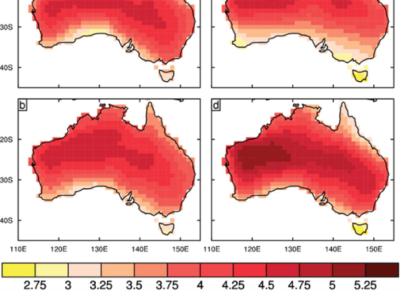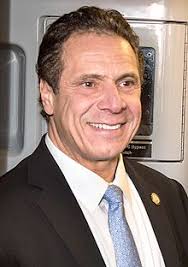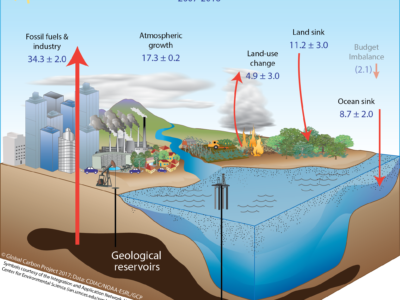Climate Policy
BoJo versus Trump on Climate
Why is the GOP such an outlier on climate change?
Boris Johnson is like Trump in many ways, including a casual disregar for truth, but they’re not alike on climate change. Right after his victory, Johnson renewed his pledge to make the UK carbon-neutral by 2050. He called for “colossal new investments. . . to make this country the cleanest, greenest on earth, with the …
Continue reading “BoJo versus Trump on Climate”
CONTINUE READINGSpotlight on San Antonio
The role of transparency in municipal climate plans
Last week, San Antonio’s City Council approved its first-ever Climate Action and Adaptation Plan. This Plan’s main benefit is its ability to track and measure GHG emissions, while also signaling to City agencies, other municipalities, and the state that it is committed to climate mitigation and adaptation efforts. This is a big win for a …
Continue reading “Spotlight on San Antonio”
CONTINUE READINGWhat Do the Candidates’ Climate Proposals Tell Us?
There is a big disconnect between climate proposals and political reality.
Some people were upset because there wasn’t a question about climate change at the last Democratic debate. Admittedly, that’s a lost opportunity to highlight the importance of the issue. But the significance of the candidates’ various positions on climate change is limited. Let me start with what they don’t tell us. The main thing they …
Continue reading “What Do the Candidates’ Climate Proposals Tell Us?”
CONTINUE READINGClimate Politics Down Under
Australia is leaping from the frying pan into the fire.
Australian climate politics has been strange if not chaotic. And in terms of climate policy, things seems to be going from bad to worse. This is partly a function of general political upheaval. In an enlightening 2018 paper, three University of Melbourne law professors (Baxter. Milligan, and McRae) traced the developments from 2007 to 2016. …
Continue reading “Climate Politics Down Under”
CONTINUE READINGThe filibuster and climate change legislation
Should we eliminate the Senate filibuster to advance climate change legislation
As the Democratic Presidential primary season has unfolded, a number of the candidates have argued for eliminating the filibuster in the Senate completely. (It is currently gone for confirmation of nominations of judges and executive branch officials, but remains for substantive legislation.) So has former Democratic Senate Majority Leader Harry Reid. One of the key …
Continue reading “The filibuster and climate change legislation”
CONTINUE READINGPrinciples of Climate Governance
We need to address the procedures and structures for climate policymaking.
There’s a lot of discussion about the substance of climate policy today. That’s obviously critical, but we also need to think about the procedural and institutional issues involved in making climate policy. For instance, we need to think about how to divide authority between the states and the federal government. I thought it would be …
Continue reading “Principles of Climate Governance”
CONTINUE READINGNew York’s Big Move
The Empire State has jumped into the first tier of state climate action.
Last week, New York Governor Andrew Cuomo signed a breakthrough climate change law, the “New York State Climate Leadership and Community Protection Act.” What every state does to address climate change is worthwhile, of course, but New York is particularly significant in terms of the national picture. It’s the nation’s third-most populous state and also …
Continue reading “New York’s Big Move”
CONTINUE READINGGuest Blogger Michael Panfil: Supreme Court Declines to Hear New York and Illinois Clean Energy Cases Challenging Zero Emission Credits
Cert. Denials Have Significant Implications for Environment, Human Health, and Clean Energy
States are on the leading edge in crafting pathbreaking climate and clean energy policy. They rely on longstanding authority to do so to further their citizens’ welfare and wellbeing. That bedrock authority recently received important reaffirmation from the Supreme Court, which last month declined petitions for review in two cases with important implications for power …
CONTINUE READINGIn Defense of Live Carbon
Why Stopping Deforestation May be the Hardest and Most Important Part of the Climate Change Challenge
When contemplating the enormous challenge of global climate change, it is sometimes helpful to think about a simple model of the global carbon budget (see figure below). These admittedly reductionist schematics distinguish between sources, sinks, and reservoirs. Fossil hydrocarbons from the geological reservoir–call this dead carbon—are extracted and burned to generate energy, emitting vast amounts …
Continue reading “In Defense of Live Carbon”
CONTINUE READINGClimate Change & the Democratic Candidates
The candidates are all in favor of climate action but there are significant variations in their stances.
It’s hard to keep track of the twenty or so Democrats who are in the running for the 2020 presidential nomination. The differences between them on climate policy are minor compared with the gulf between them and President Trump. All of them support the Paris Agreement, unlike Trump. And all of them vow to restore …
Continue reading “Climate Change & the Democratic Candidates”
CONTINUE READING









